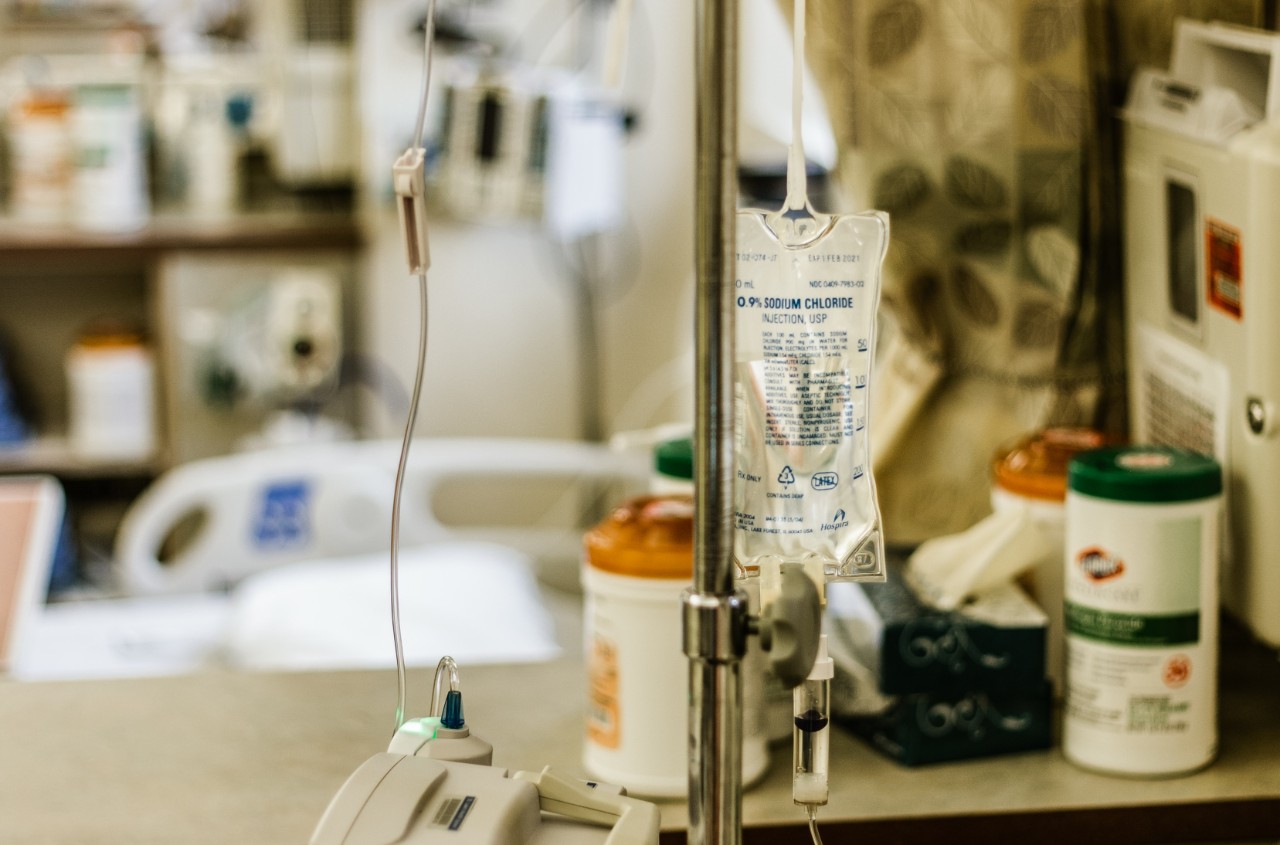
The Oncology Nursing Podcast: UC expert discusses antimetabolite drugs
The University of Cincinnati's Rowena Schwartz joined The Oncology Nursing Podcast to discuss what oncology nurses need to know about a class of chemotherapy drugs called antimetabolites.
Schwartz, PharmD, said antimetabolites are some of the oldest anti-cancer drugs that are "developed to be similar to naturally occurring compounds that are important in cell production." They work in different ways to accomplish the goal of killing cancer cells, and also have uses as antibacterial drugs, she said.
Each drug has different potential side effects, and even the same drug can have different side effects when given at different doses and regimens, Schwartz said, highlighting the need for every member of an oncology care team to be familiar with each specific drug, dose and regimen.
"If I don’t use a drug often, I will always look it up again before I do any kind of education for a patient," said Schwartz, professor of pharmacy practice at UC's James L. Winkle College of Pharmacy. "If I don’t use [a drug] routinely in my practice, I always find myself reviewing it just to make sure that a nuanced side effect that may be very important for a patient, I will go over."
Patient education is a job for the whole team, Schwartz said, and there needs to be collaboration between doctors, nurses and pharmacists.
"I think that in this day and age it is really important that there’s collaboration in developing whatever resources that we have," she said. "I guess that goes even beyond order sets to the education we deliver to patients to make sure it’s a consistent message. I think that is essential that the team knows what everybody is going to say so that it is consistent, because patients get so confused."
Even though antimetabolites are an older type of drug, Schwartz said she believes they will remain an important part of cancer treatment.
“I think that there are certain agents that are so foundational in some diseases that they will remain. Whether they remain first-line, maybe not; maybe they’ll go to second line as we see things evolve with new agents," she said. "Some of these drugs have been very effective in the diseases in which they are used to treat patients. There’s a long term place in therapy for these, and I think that we'll still be using these.”
Listen to The Oncology Nursing Podcast.
Featured photo at top of hospital room. Photo/Dmitri Karastelev/Unsplash.
Related Stories
Cincinnati researchers want to know if MRIs can work better
June 28, 2024
WVXU and the Cincinnati Business Courier highlighted a new collaboration between the University of Cincinnati College of Medicine, UC Health GE HealthCare, JobsOhio, REDI Cincinnati and Cincinnati Children’s to create an MRI Research and Development Center of Excellence located on UC’s medical campus.
UC opens Blood Cancer Healing Center
June 28, 2024
Media outlets including WLWT, Local 12, Spectrum News, the Cincinnati Enquirer and Cleveland.com highlighted the opening of the University of Cincinnati Cancer Center's Blood Cancer Healing Center.
Financial factors to consider when moving
June 27, 2024
Moving can be a stressful and expensive endeavor. When it comes time to move, there are important financial implications to consider, Gary Painter, PhD, the academic director of the University of Cincinnati’s Carl H. Lindner College of Business real estate program and a professor of real estate, told USA Today.
New project aims to better support teen mothers in Adams County
June 27, 2024
WCPO highlighted a partnership between the University of Cincinnati and the Adams County Health Department that is aiming to provide better support for teen mothers in the county.
Free Wi-Fi, work area coming to Greater Cincinnati
June 27, 2024
St. Lawrence Park in Price Hill now has free Wi-Fi and a furnished outdoor space for community members to access digital needs. The space is part of The Nodes Project, which stands for “Neighborhoods of Design Engagement": a collaboration between UC DAAP communication designers and community entities.
Study aimed at reducing opioid overdose deaths presents results
June 27, 2024
The University of Cincinnati's John Winhusen and Caroline Freiermuth discussed the evidence-based practices implemented during the HEALing Communities Study to fight the opioid epidemic with Spectrum News.
University of Cincinnati, UC Health collaborate with GE HealthCare on MRI research center
June 26, 2024
The University of Cincinnati and UC Health are collaborating with GE HealthCare, JobsOhio, REDI Cincinnati and Cincinnati Children’s to create an MRI Research and Development Center of Excellence located on UC’s medical campus.
The health impact of living near a natural gas leak
June 25, 2024
UC College of Arts and Sciences Professor Amy Townsend-Small talks to the BBC about the health issues faced by neighbors of leaking natural gas wells.
Male birth control gel inches towards FDA approval
June 25, 2024
The University of Cincinnati's Wesley Baas spoke with Yahoo News and the Cincinnati Enquirer about a new male birth control gel that could be close to receiving FDA approval.
University of Cincinnati Cancer Center launches Blood Cancer Healing Center
June 25, 2024
The University of Cincinnati Cancer Center celebrated the opening of its state-of-the-art Blood Cancer Healing Center June 24.
